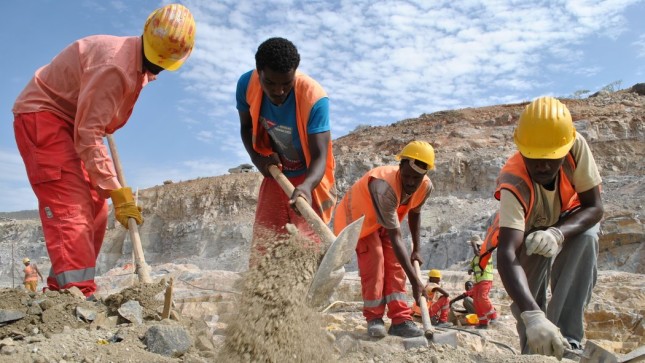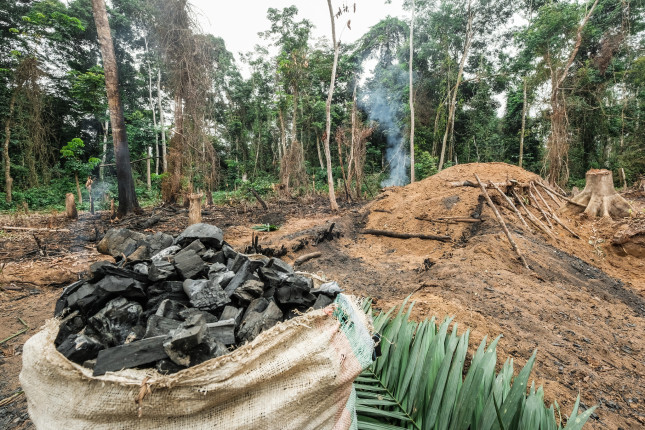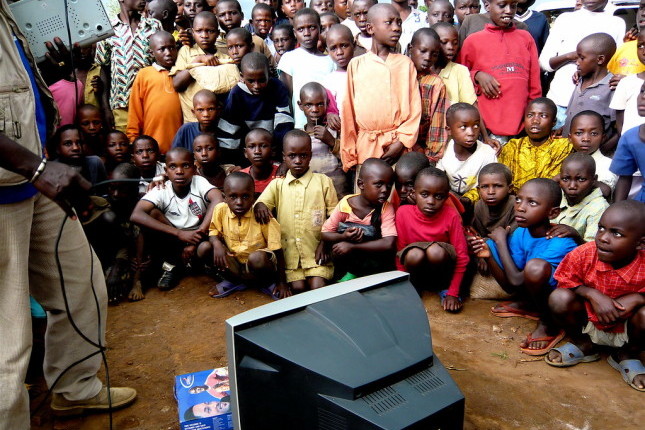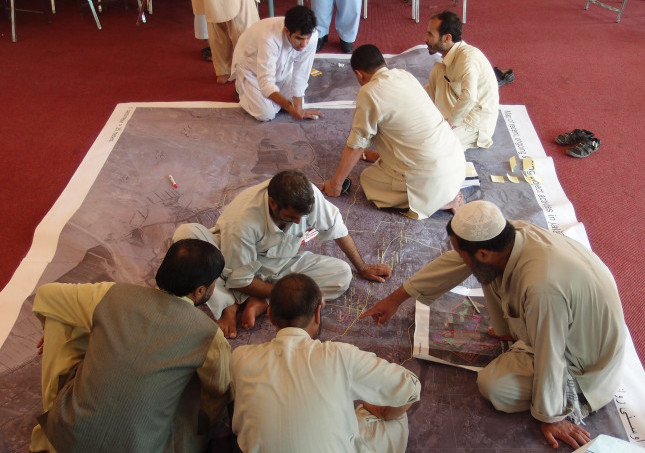-
A Generation in Limbo: Protracted Refugee Situations in Kenya Must Be Addressed
›August 15, 2019 // By John Thon Majok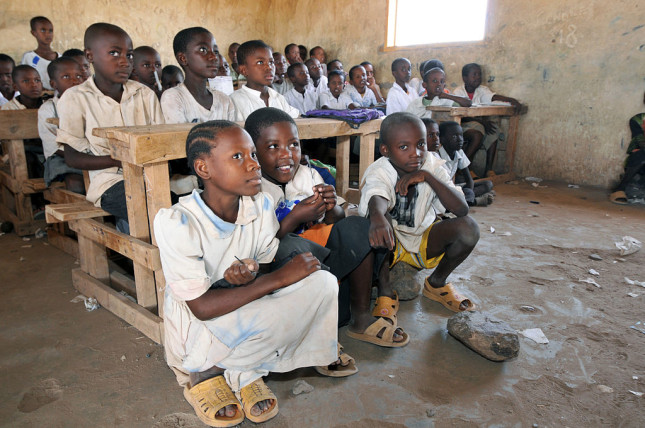
The 1951 Refugee Convention spells out refugee rights, including the right to freedom of movement. Yet 68 years later, 15.9 million people are trapped in prolonged exile, living as refugees for anywhere from 5 to 47 years and counting. The unprecedented duration of protracted refugee situations (PRS) and the increasing scale of forced migration demand a comprehensive response beyond humanitarian assistance.
-
In Search of Consensus on Climate-Conflict Links
›
What do we (think we) know about the links between climate change and armed conflict? Early attempts to theorize what climate-related conflict might look like were exceptionally successful in sparking policymaker interest in and funding of research on climate-conflict links. But they were more like works of science fiction than science. Since then, research on climate-conflict links has exploded, with hundreds of articles and working papers published on the subject. Moreover, the findings have been all over the map, with some arguing for strong impacts of climate on conflict at multiple temporal and spatial scales, while others argue—in both specific instances, about the supposedly climate-fueled Syrian Civil War, and more generally—that climate-conflict links are overstated.
-
Concerns Rise Over Governance Gap in Arctic
›
“We’re attempting to do something that’s never been done before in world history,” said Senator Angus King (I-ME). “The peaceful development of a major new physical asset.” He spoke of the Arctic Ocean at the 8th Symposium on the Impacts of an Ice-Diminishing Arctic on Naval and Maritime Operations. The symposium was hosted by the Wilson Center’s Polar Institute, in partnership with the U.S. Arctic Research Commission, U.S. National Ice Center, Arctic Domain Awareness Center, Patuxent Partnership, St. Mary’s College of Maryland, and the Ronald Reagan Building and International Trade Center.
-
Erika Weinthal on the Weaponization of Water in Conflict Settings
› “When you’re in a post-conflict phase, it means we really should be moving away from humanitarian assistance into development because we’ve moved along the conflict spectrum toward peace and development,” says Erika Weinthal, the Lee Hill Snowdon Professor of Environmental Policy at Duke University, in this week’s Water Stories podcast.
“When you’re in a post-conflict phase, it means we really should be moving away from humanitarian assistance into development because we’ve moved along the conflict spectrum toward peace and development,” says Erika Weinthal, the Lee Hill Snowdon Professor of Environmental Policy at Duke University, in this week’s Water Stories podcast. -
Nile River Water Supply Forecasts May Reduce the Chance of Conflict
›
Rising tensions between Egypt and Ethiopia over construction of the Grand Ethiopian Renaissance Dam (GERD) have led to speculation that there could be a war over water. When completed, the dam will be the largest in Africa. And it will give Ethiopia control over the Blue Nile River, a major source of Egypt’s water.
-
Lost in Translation: How Building “Strong” Institutions can Diminish Human Security in the Global South
›
In the Global South, natural resource conflict has largely been considered a consequence of poor governance and weak political institutions. The international community’s solution? Build “green” governance capacity as a way to mitigate violent conflict and improve environmental outcomes. For the international development community, this has meant introducing laws, policies, and practices based on international standards of best practice, and training local regulators to adhere to those standards.
-
The Power of Serial Dramas: Popular Characters Help Change Attitudes and Behaviors
›
“We are all convinced that educational entertainment is the way to go now,” said Anselme Muzalia Wimye, Program Quality Director at Search for Common Ground in the Democratic Republic of the Congo (DRC). He spoke at a recent event hosted by the Wilson Center’s Environmental Change and Security Program, Maternal Health Initiative, and The Population Institute. The panel discussed the power of educational entertainment (EE), in particular serial dramas, to precipitate positive behavioral change and public health outcomes in Africa.
-
When Climate Change Meets Positive Peace
›
Climate change is being increasingly framed as a security issue—a “threat multiplier” that can amplify the risks of breakdowns in peacefulness. Yet, even extreme climate hazards do not always lead to higher levels of violence.
Showing posts from category security.


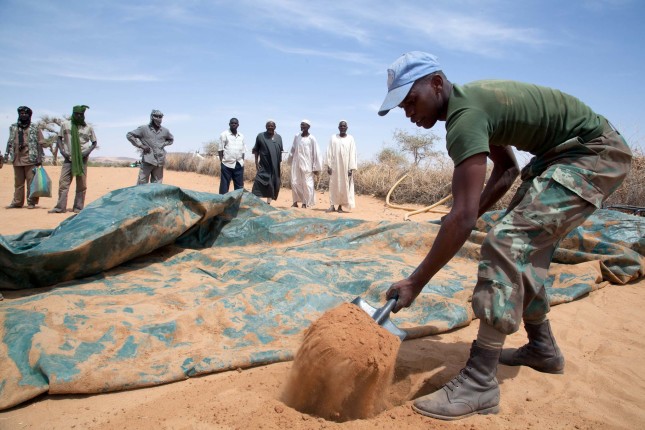
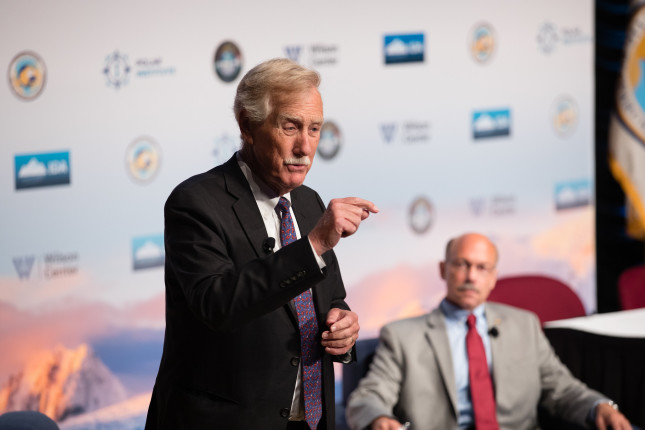
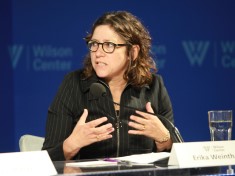 “When you’re in a post-conflict phase, it means we really should be moving away from humanitarian assistance into development because we’ve moved along the conflict spectrum toward peace and development,” says Erika Weinthal, the Lee Hill Snowdon Professor of Environmental Policy at Duke University, in this week’s Water Stories podcast.
“When you’re in a post-conflict phase, it means we really should be moving away from humanitarian assistance into development because we’ve moved along the conflict spectrum toward peace and development,” says Erika Weinthal, the Lee Hill Snowdon Professor of Environmental Policy at Duke University, in this week’s Water Stories podcast.